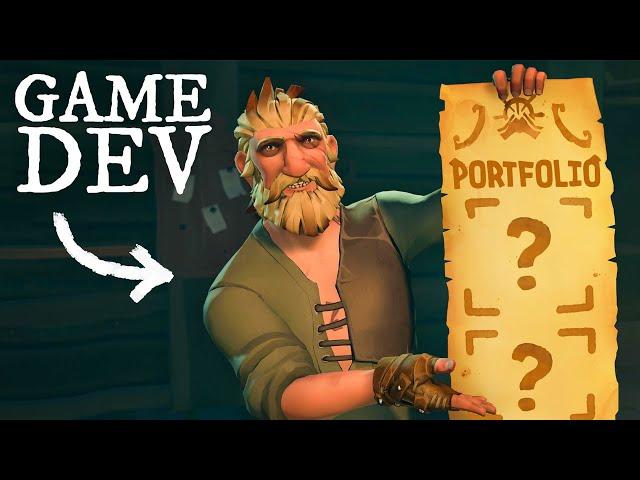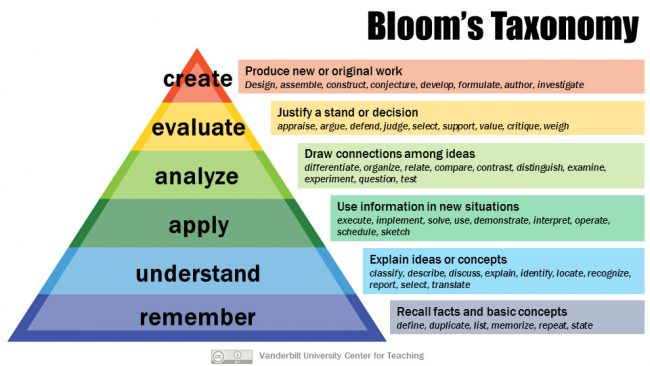Game Developer's Portfolio

Welcome to Game Developer's Portfolio
Creating and maintaining a portfolio is a crucial part in any game developer's job search and career.? Portfolios are especially challenging for programmers, since the work presented is not inherently visual, yet it must still effectively demonstrate the individual's prowess and skills in their discipline.? This course provides Game Programmers a formal opportunity to sum up their experience in the major and produce a portfolio worthy of presentation at the Senior Show.? In this course, students discuss and implement pertinent portfolio materials for programmers, such as websites, repositories and demo reels.? Students will have an opportunity to spearhead an entirely solo project to add as a centerpiece to their materials.
This course is free!
Course Contents:
- Week 01: Introduction to Portfolio
- Introduction to Portfolio
- Assignment 01
- Assignment 02
- Week 02: Portfolio Website
- Portfolio Website Foundations
- Assignment 03
- Assignment 04
- Week 03: LinkedIn Profile
- LinkedIn Profile
- Assignment 05
- Week 04: Github Readme
- Effective Github Readme
- Assignment 06
- Week 05: Demo Reels
- Effective Demo Reels
- Activity Demo Reels
- Demo Reels Assignment
- Week 06: Cover Letter
- Cover Letter
- Cover Letter Assignment
- Week 07: Center Piece Touchpoint
- Center Piece Touchpoint
- Center Piece Touchpoint Assignment
- Week 08: Presenting your ideas visually
- Presenting Visually your Ideas
- Using UML for presenting ideas
- Presenting Visually your Ideas Assignment
- Week 09: Finalizing your Demo Reels
- Finalizing your Demo Reels
- Finalizing your Demo Reels Assignment
- Week 10: Finalizing your Portfolio
- Finalizing your Portfolio
- Week 11: Interviews
- Acing Interviews
- Mock Interview
Course Description:
Game Developer's Portfolio
Creating and maintaining a portfolio is a crucial part in any game developer's job search and career.? Portfolios are especially challenging for programmers, since the work presented is not inherently visual, yet it must still effectively demonstrate the individual's prowess and skills in their discipline.? This course provides Game Programmers a formal opportunity to sum up their experience in the major and produce a portfolio worthy of presentation at the Senior Show.? In this course, students discuss and implement pertinent portfolio materials for programmers, such as websites, repositories and demo reels.? Students will have an opportunity to spearhead an entirely solo project to add as a centerpiece to their materials. Source
Requirements
- 90 Credits
Student-centered Learning Outcomes
Upon completion of the Game Developer's Portfolio course, students should be able to:
Objective Outcomes
- Demonstrate Proficiency in Programming Languages:
- Showcase competence in relevant programming languages commonly used in game development.
- Implement and explain code snippets that highlight problem-solving skills and efficiency.
- Develop an Individual Project:
- Spearhead a solo game development project to showcase the ability to conceive, plan, and execute a complete game;
- Demonstrate a deep understanding of programming concepts through the development of a unique and challenging project.
- Create a Professional Portfolio Website:
- Design and develop a visually appealing and user-friendly portfolio website to showcase programming projects.
- Utilize web development tools and frameworks to enhance the presentation of coding projects.
- Build a Source Code Repository:
- Establish and maintain a version-controlled repository (e.g., GitHub) containing well-documented code samples.
- Demonstrate proficiency in using version control tools and collaborative development practices.
- Develop a Demo Reel:
- Create a compelling demo reel that effectively communicates programming skills and contributions to game projects.
- Edit and present code snippets in a clear and concise manner within the demo reel.
- Articulate Programming Contributions:
- Clearly communicate the role and impact of programming contributions in game development projects.
- Develop the ability to discuss technical aspects of projects in a non-technical manner for diverse audiences.
- Understand Industry Standards and Best Practices:
- Adhere to industry standards and best practices in game programming.
- Apply knowledge of optimization, performance, and coding conventions commonly used in the game development industry.
- Prepare for the Job Search and Senior Show:
- Develop skills in resume writing, cover letter creation, and interview preparation specific to game programming roles.
- Prepare and present the portfolio effectively at the Senior Show or similar events to potential employers and industry professionals.
- Receive and Provide Constructive Feedback:
- Participate in peer reviews and constructive critiques to enhance the quality of portfolio materials.
- Provide thoughtful feedback to peers on both the technical and presentation aspects of their portfolios.
- Reflect on Learning and Career Goals:
- Reflect on personal learning experiences and identify areas for continuous improvement in game programming skills.
- Develop a clear understanding of career goals and create a plan for ongoing professional development in the game development industry.
Schedule for Spring 2025
Note
This is a work in progress, and the schedule is subject to change. Every change will be communicated in class. Use the github repo as the source of truth for the schedule and materials. The materials provided in canvas are just a copy for archiving purposes and might be outdated.
Week 1: Introduction to Portfolios and Course Expectations
- Topics:
- Overview of the course and deliverables.
- Ikigai
- What makes an effective programmer portfolio?
- Examples of strong programmer portfolios and common pitfalls.
- Planning your portfolio centerpiece project.
- Assignment:
- Write a one-page proposal for your solo centerpiece project(s), including objectives, tools, scope, and deliverables.
- Review at least three existing programmer portfolios online and write a reflection on what makes them strong or weak.
Week 2: Portfolio Website Foundations
- Topics:
- Essentials of building a programmer portfolio website.
- Tools and frameworks (e.g., Next.js, React, or WordPress).
- Structuring content: Projects, About Me, Resume, Contact.
- Writing clear, engaging project descriptions.
- Assignment:
- Create a wireframe/mockup for your portfolio website, including layout and content structure.
- Begin implementing the website using your chosen tools. Deliver the first draft with placeholders for projects and sections.
Week 3: Professional Networking and LinkedIn Optimization
- Topics:
- The role of networking in the game industry.
- How to create an optimized LinkedIn profile.
- Writing a professional headline, summary, and experience tailored to game programming.
- Reaching out and connecting with industry professionals.
- Assignment:
- Build or update your LinkedIn profile to reflect your game programming skills and aspirations.
- Write a personalized message template for connecting with industry professionals.
- Share your LinkedIn profile with peers for feedback.
Week 4: Polishing Code Repositories
- Topics:
- Best practices for presenting code on GitHub or similar platforms.
- Writing effective READMEs and documentation for projects.
- Structuring repositories to showcase technical skills.
- Assignment:
- Select one of your portfolio demo projects and create a polished GitHub repository with a detailed README, project description, and clear setup instructions.
- Peer review a classmate’s repository and provide constructive feedback.
Week 5: Creating a Demo Reel
- Topics:
- What makes a great programmer demo reel.
- Editing software and tools (e.g., Premiere Pro, DaVinci Resolve).
- Structuring the reel: intro, highlights, outro.
- How to showcase your technical work visually (e.g., game mechanics, debugging tools, AI behavior).
- Assignment:
- Write a storyboard or script for your demo reel, outlining the structure and key visuals.
- Record and capture initial clips of your projects for the reel.
Week 6: Crafting a Professional Cover Letter and Resume
- Topics:
- Tailoring a cover letter and resume to specific job positions.
- Highlighting technical skills, projects, and achievements.
- Avoiding common mistakes in resumes and cover letters.
- Assignment:
- Write a targeted cover letter and resume for a specific game programming job posting.
- Share your drafts with peers for feedback and incorporate revisions.
Week 7: Advancing the Solo Centerpiece Project
- Topics:
- Midpoint check-in: Progress updates on centerpiece projects.
- Strategies for troubleshooting and staying on schedule.
- Incorporating feedback into your project.
- Assignment:
- Deliver a mid-project demo of your centerpiece project, including a short presentation on its progress and challenges.
- Write a self-assessment of your progress and outline next steps.
Week 8: Presenting Projects Visually
- Topics:
- Taking professional-quality screenshots and creating GIFs of projects.
- Designing eye-catching thumbnails and banners for your portfolio website.
- Writing effective captions for visual assets.
- Assignment:
- Create and upload visual assets for at least two portfolio projects.
- Update your portfolio website to include polished visuals and captions.
Week 9: Finalizing the Demo Reel
- Topics:
- Editing tips for pacing, transitions, and clarity.
- Adding music and voiceovers to your demo reel.
- Reviewing and iterating based on peer feedback.
- Assignment:
- Deliver a near-final version of your demo reel for peer review.
- Incorporate feedback and prepare for final submission.
Week 10: Polishing and Reviewing Portfolios
- Topics:
- Finalizing all portfolio elements: website, demo reel, projects, and LinkedIn profile.
- Reviewing and critiquing peer portfolios.
- Checklist for a professional portfolio.
- Assignment:
- Submit your complete portfolio, including the website, GitHub repositories, demo reel, and LinkedIn profile.
- Conduct peer reviews of two classmates’ portfolios using a provided rubric.
Week 11: Mock Job Applications
- Topics:
- Simulating job application processes.
- Mock interviews and presenting portfolios to industry professionals.
- Handling feedback and iterating on materials.
- Assignment:
- Apply for a mock job posting by submitting your resume, cover letter, and portfolio.
- Participate in a mock interview and present your portfolio to an instructor or guest reviewer.
Week 12: Final Presentation and Senior Show Preparation
- Topics:
- Preparing for the Senior Show.
- Tips for presenting your work confidently and professionally.
- Networking during events and following up with connections.
- Assignment:
- Present your portfolio, demo reel, and centerpiece project in a formal presentation.
- Write a final reflection on your growth during the course and how your portfolio represents your skills and aspirations.
OLD Spring 2024 semester:
| Week | Date | Topic |
|---|---|---|
| 1 | 2024/01/15 | Introduction |
| 2 | 2024/01/22 | Case Studies |
| 3 | 2024/01/29 | Game Developer Portfolio Structure |
| 4 | 2024/02/05 | Communication & Audience |
| 5 | 2024/02/12 | Strategy & Analytics |
| 6 | 2024/02/19 | Demo Reels |
| 7 | 2024/02/26 | Frontend |
| 8 | 2024/03/04 | Content Management System |
| 9 | 2024/03/11 | BREAK |
| 10 | 2024/03/18 | Final Project & Coding Interviews |
| 11 | 2024/03/25 | Hosting and Domain |
| 12 | 2023/04/01 | Dynamic Content & Blogs |
| 13 | 2023/04/08 | Promoting |
| 14 | 2023/04/15 | Cover Letters |
| 15 | 2023/04/22 | Traditional CVs |
| 16 | 2023/04/26 | FINALS |

